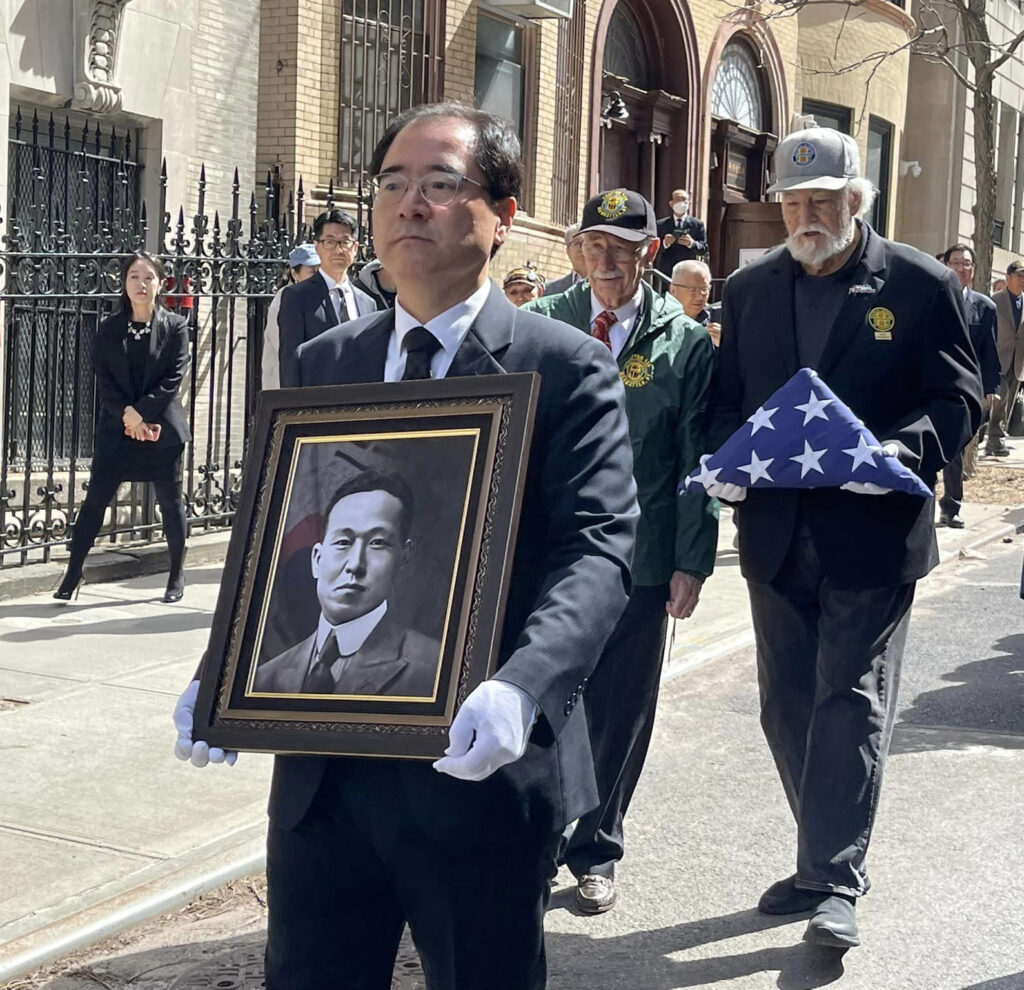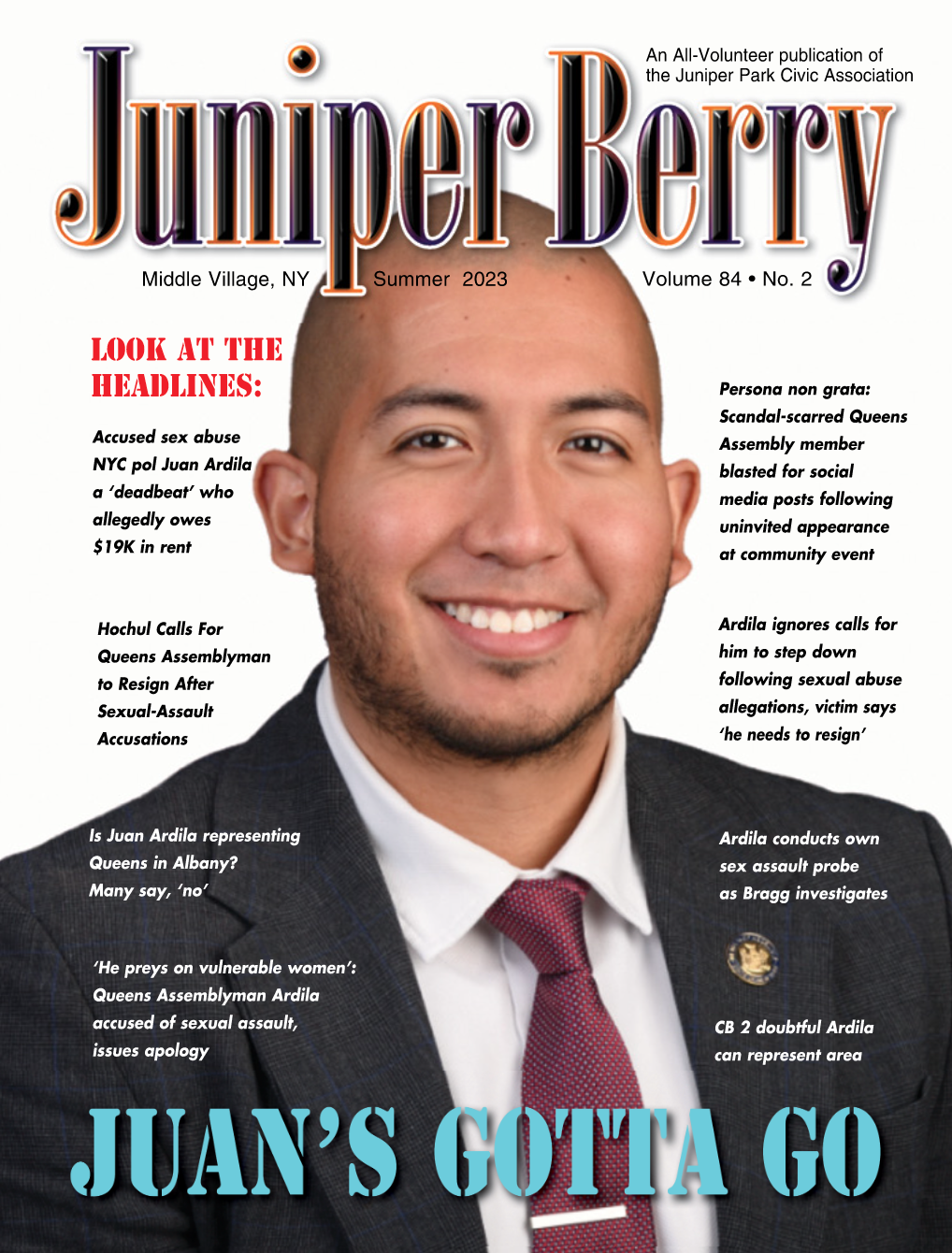Whang Ki-Hwan, Independence Pioneer, Diplomat, Was Buried In Maspeth In 1923
When he was buried in Mount Olivet Cemetery in Maspeth in 1923, Whang Ki-hwan was known as Carl.
But in his native Korea, he is known to this day as a high-level diplomat and dignitary who fought tirelessly on behalf of his homeland to gain its independence from Japan.
In April, the Republic of Korea brought him home to a hero’s welcome, with a little bit of help from Carl’s new friends in the neighborhood.
A biography provided by the Consulate General of the Republic of Korea in Manhattan says Whang was born in the mid-1880s and came to the United States in April 1904. He volunteered for the U.S. Army in World War I.
But in 1919, after the war, he went to Paris to join Kim Kyu-sik, a leader in the Korean independence movement, who was representing the provisional Korean government at the Versailles peace conference talks. The group eventually was restructured as the Paris Commission, on which he fought for recognition of an independent Korea.
He also earned recognition himself as a diplomat, work- ing with numerous countries to assist Korean populations and communities.
He was working in London in 1921 when he was assigned to New York to help with the push for Korea’s official recognition.
Heart disease claimed him on April 17, 1923. He was laid to rest in Mount Olivet beneath a headstone that called him Earl K. Whang.
“It was carved by hand,” said Councilman Bob Holden (D-Maspeth). “In the script of the day someone mistook a C for an E.”
Christina Wilkinson, president of the Newtown Historical Society and a long- time area historian, said she didn’t even know Whang’s story until recently when she was chatting with Tony Nunziato, president of the Juniper Park Civic Association and owner of a florist shop near Mount Olivet.
“Tony told me that there was a lot of excitement,” Wilkinson said. “There were a lot of Korean soldiers in dress uniforms outside the cemetery.”
When they learned of Whang, Wilkinson, a tireless researcher, found out a good deal about the man she never knew was buried in Mount Olivet.
“I’m very familiar with that cemetery,” she said. “I was curious.”
She found out, among other things, that the Korean government, not for the first time, was trying to bring the early champion of Korean independence home.
It then became a job for Holden and his chief of staff, Daniel Kurzyna.
“Apparently, this had been going on for years and I wasn’t aware of it,” Holden said. “Basically, there was too much bureaucratic red tape here.”
Holden welcomed high-level Korean diplomats. He met with cemetery officials. He met with multiple city agencies. He helped pursue a court order to have the casket exhumed.
“A judge told us there was no proof that there weren’t any relatives here,” Holden said. But in March, Whang’s remains were removed.
Holden and Kurzyna were even invited to ceremonies in Korea.
Sungo Huh, consul of the Korean Consulate told the Queens Chronicle in an email that they had been trying to repatriate Whang at the request of New York’s Korean community since 2019, the 100th anniversary of the formation of the country’s first provisional government.
A ceremony took place in New York on April 8 at Manhattan’s Korean Methodist Church on 115th Street.
Ceremonies in Korea on April 10 included the minister of patriots and veterans’ affairs, U.S. Ambassador Philip Goldberg and members of the Korean National Assembly.
This article first appeared in the Queens Chronicle and was reprinted with permission.



